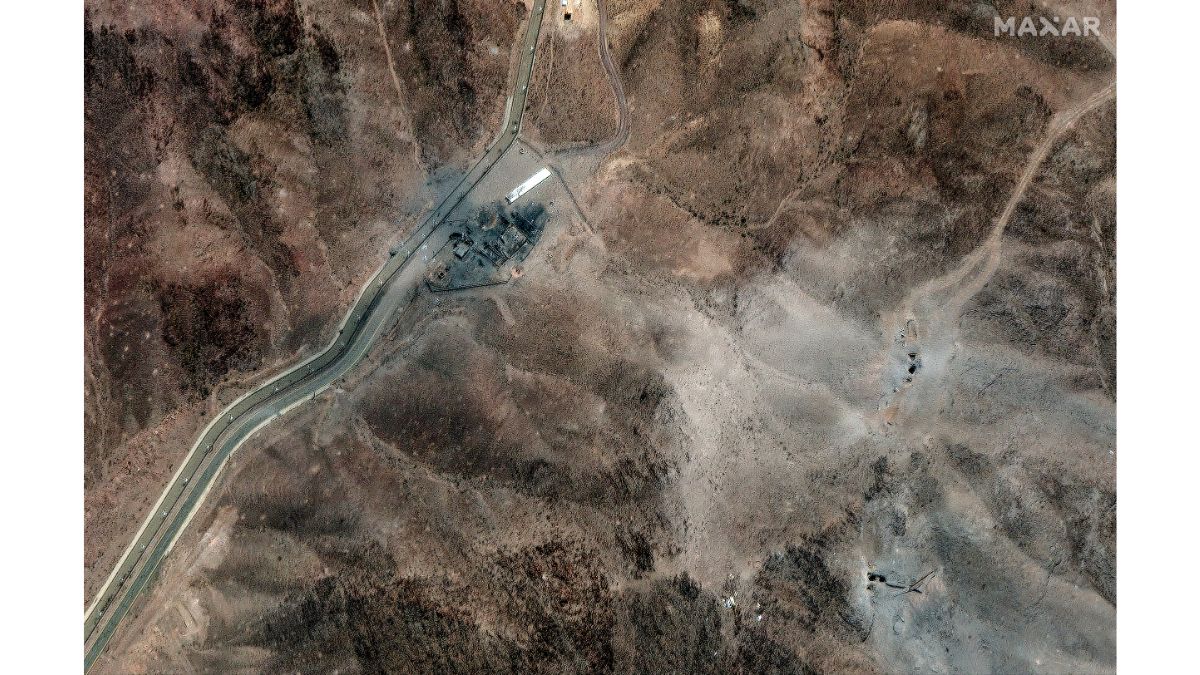The Iran-Israel war, long simmering in the shadows through proxies and intelligence skirmishes, finally erupted into a direct confrontation that not only shook the Middle East but stirred the global order. But when the smoke cleared and ceasefires took fragile shape, one was left asking: who really won, and who truly lost? Or, was there a victor at all?
To examine this conflict in isolation is to miss its complex genealogy. The war did not begin in April 2025 or December 2024 when the first missiles were openly exchanged. It began decades ago, seeded in ideological conflict, regional ambition, historical grievance, and strategic calculation. Iran, with its consistent commitment to anti-Zionism, and Israel, with its existential anxiety and security doctrine of pre-emption, have long danced a deadly duet, each enabling the other’s paranoia. But it was American withdrawal from regional stewardship and the collapse of the two-state illusion in Palestine that provided the vacuum into which this war was sucked.
What we witnessed was not merely a regional war. It was a hybrid conflict—a mosaic of direct missile exchanges, cyberattacks, targeted assassinations, and proxy engagements in Syria, Lebanon, and even the Red Sea. Iran mobilised its axis of resistance—Hezbollah in Lebanon, the Houthis in Yemen, and militias in Iraq and Syria. Israel, technologically superior, retaliated with brutal precision.
Cities in both nations bled. Tel Aviv’s iron dome held—but not always. Tehran saw unprecedented cyber blackouts. Lebanon was devastated again. Hundreds died, thousands were displaced, and the economy of the region—already tottering—collapsed further. Oil prices soared, and global supply chains convulsed.
For Iran, the war was both a demonstration of capability and a revelation of vulnerability. The Islamic Republic showcased a remarkable ability to coordinate its proxies. The war gave it a psychological edge—it proved Iran could threaten Israeli soil directly, not just through intermediaries.
Internally, the war deepened fissures in Iranian society. Already fatigued by years of sanctions, economic mismanagement, and the trauma of the Mahsa Amini protests, a significant segment of the Iranian public was far from united in support of escalation. Still, the regime’s narrative of resistance resonated with many, and illusions of regime change in Iran were reminiscent of past Western imperialism, apart from being premature and misjudged.
Impact Shorts
More ShortsIsrael, for its part, won tactically perhaps, but reinforced its dubious image as the bully of the Middle East. The unstable and precarious regime of Benjamin Netanyahu can only survive by invoking the simulated nationalism of war, and the notion of ‘Israel under siege’. However, it did demonstrate, backed by the fulsome supply of American weapons, its military and intelligence superiority. Iranian weapons convoys were obliterated. Key militia commanders were assassinated. Tel Aviv showed it could strike at the heart of Iranian infrastructure.
But the strategic victory is less clear. For a nation that prides itself on deterrence, Israel failed to deter. Iran did retaliate. Its missiles did land. Its proxies did act. And perhaps most significantly, there is no clarity about whether its uranium enrichment programme has suffered fatal damage. Israel’s domestic unity frayed. The war accelerated the cleavage between secular and religious Jews, Ashkenazi and Mizrahi populations, and reignited Palestinian resistance in the West Bank.
Israel emerged militarily intact but politically shaken, increasingly dependent on the continued commitment of its American patron. Its image as a democratic fortress amid authoritarian neighbours grew threadbare under the scrutiny of war-time censorship and aggressive counterinsurgency.
And what of America? Perhaps there is a diabolical method in the apparent madness of Donald Trump. He allowed Israel and Iran to batter each other, even joining Israel briefly in its attack on Iran, and then when he had left both sufficiently wounded, put pressure on them to agree to a ceasefire.
India’s position during the Iran-Israel war exemplified the dilemmas of an aspiring global power. Bound by its traditional ties to Iran—a vital oil supplier and a counterbalance to Pakistan’s regional ambitions—India also shares a deepening strategic embrace with Israel, especially in defence, agriculture, and cyber-security.
New Delhi’s official stance was one of predictable neutrality. It called for de-escalation, respect for the sovereignty of both nations, and reiterated its commitment to regional peace. But underneath the platitudes was a passive diplomatic tightrope act.
India could not afford to antagonise Israel—now a crucial supplier of defence technologies and a political partner against Islamic extremism. At the same time, alienating Iran would jeopardise the Chabahar port project, India’s gateway to Central Asia, and push Tehran closer to China.
Moreover, with over eight million Indians living and working in the Gulf, India had a strong interest in preventing the conflict from escalating into a wider regional war. Its evacuation operations were efficient, but it was clear that India still lacks the heft to shape outcomes in West Asia. It is a stakeholder, yes, but not yet a shaper.
Perhaps the most haunting truth is that no one won. Iran bled, Israel endured, America equivocated, and India chose to remain a bystander. The people—civilians in Tehran, Tel Aviv, Beirut, Sana’a—were the true losers. Victory was claimed on all sides, but it was a hollow, rhetorical one. The war did not redraw borders. It did not resolve grievances. It merely exposed the unsustainable status quo.
In the war’s aftermath, the Middle East is more fragmented, its future more precarious. The spectre of nuclear escalation—unthinkable until recently—now hovers ominously over future skirmishes. The real challenge lies ahead—in the building of a new regional architecture that transcends sectarianism, balances power, and invests in peace. India, with its historic civilisational ties to West Asia and its growing economic and diplomatic capital, must strive to be more than a fence-sitter.
The writer is a former diplomat, an author, and a politician. Views expressed in the above piece are personal and solely those of the author. They do not necessarily reflect Firstpost’s views.


)

)
)
)
)
)
)
)
)



